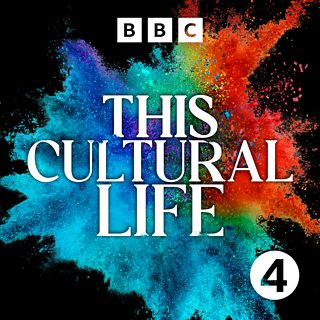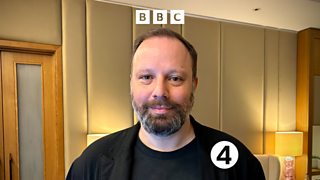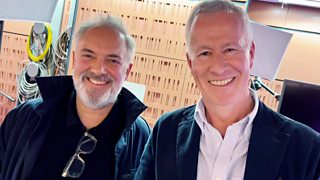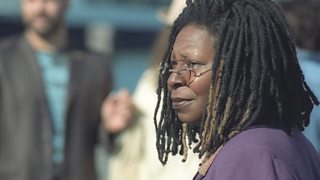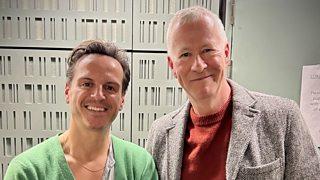Yorgos Lanthimos: Nine things we learned from his This Cultural Life interview
Yorgos Lanthimos is quite an unlikely Hollywood success story. The Greek director’s film career took off with Dogtooth, a surreal movie about a man who keeps his adult children in a state of perpetual childhood. Yet through his startling originality he’s become one of the industry’s most lauded directors. His new film, Poor Things, is nominated for 11 Oscars. In This Cultural Life, he tells John Wilson about the childhood loss that set him on a path to filmmaking, the games he plays with actors, and why he never watches his own work.

1. Yorgos could have been a basketball player
Yorgos Lanthimos’s life might have gone in a very different direction. He had the potential to be one of Greece’s shortest basketball stars. “My father was a basketball player,” says Lanthimos, who was born in Athens, where basketball is very popular. His father played at a national level and Lanthimos says he probably could have played professionally too. “I would have been very short, I guess!” he adds. He’s 6’2", very tall for a regular person, but on the smaller side for basketball. “I decided it wasn’t the career I wanted to follow, basically because I didn’t think I was going to be as good as my father,” he says.
2. Becoming a filmmaker was an “absurd” dream
Asked if he grew up considering a creative career, Lanthimos says, “In Greece, especially back in that time, if you’d said, ‘I’m going to become a filmmaker’, it would have been quite absurd. There were so little [sic] films being made. There was no industry and financing was extremely difficult.” Instead, he set his sights on something smaller. “When I decided to get into [directing], it was more through the lens of ‘I’m going to study filmmaking but I’ll end up doing commercials to earn a living.'” He made many commercials before making his first movie.
3. Making commercials was the best film school
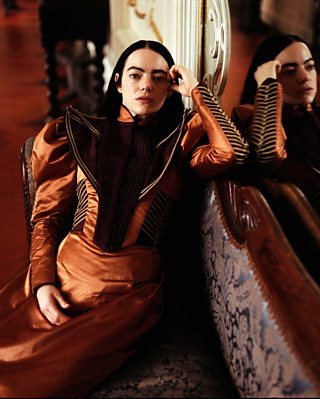
Lanthimos went to film school in Greece, which he says was “not great”, but it was making commercials that gave him his real cinematic education. “[Commercials] enabled me to do exactly what I wanted with film,” he says. “It freed me from the technical aspect. I became very proficient technically. I got a lot of experience.” Being so comfortable with the technical side meant he could let his imagination run riot. “Also, me and my friends who were making commercials and ended up making the first Greek films, we were earning good enough money to be able to stop working for a period and concentrate on film.” Without making commercials he wouldn’t have had the cash to finance his early film work.
4. He had to look after himself from the age of 17
Lanthimos’s mother died when he was 17. “She was separated from my father, so I was kind of on my own from that point on,” he says. “I think in a weird way it freed me, because I think the consensus back then… was that you need to study and become a doctor or lawyer, or something along those lines.” He studied economics for a year, but decided that wasn’t for him. “I was freed by not having, in a weird way, any pressure from parents or anything about what I’m going to do with my life. Life is short. I learned that lesson. It can end at any time, so I’d better do something I’m more interested in.”
5. He doesn’t want to be labelled as weird
Though he made his feature directing debut in 2001, with My Best Friend, Lanthimos’s breakthrough came in 2009 with the release of Dogtooth. He was grouped in as part of Greece’s "Weird Wave" of movie directors making offbeat projects. He’s not keen on the description. “I actually thought that it was a lazy way to label, well, a couple of films in the beginning,” he says. “There weren’t that many films coming out of Greece. All of a sudden there was this generation of filmmakers that… felt they could make films with less [money], but I don’t think there was a likeminded approach in terms of the creative aspect… Labelling them the ‘Greek Weird Wave’ feels quite limiting. I never was very fond of the characterisation.”
6. He plays games with actors before filming
Lanthimos doesn’t aim for anything “naturalistic” in his films. To get his actors into the loose, free, experimental mood he likes on set, he plays games with them during the rehearsal process. “There’s a lot of fooling around with voices,” he says, describing the games he played with Emma Stone and Mark Ruffalo on his latest film, Poor Things. “I would give them tasks like, ‘Start with your voice very low and then go very high while you’re saying your dialogue; then the other person has to go the other way.” Asked if anyone ever objects, he says it’s just the opposite. “Actually, they enjoy it very much. They quickly understand it’s very beneficial – and it’s very fun!”
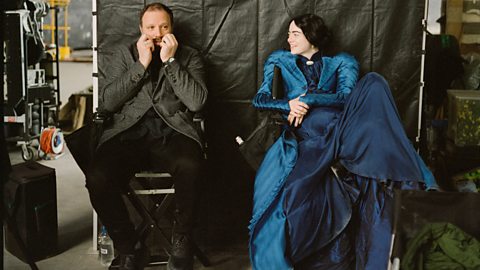
"It's so silly - what we're doing."
Director Yorgos Lanthimos talks to John Wilson about his unique rehearsal process.
7. He and Emma Stone have a fearless friendship
Lanthimos likes to work with actors repeatedly. He’s worked with Colin Farrell twice and Emma Stone four times. The latter is in Poor Things, his Oscar-winner The Favourite, his short film Bleat, and his upcoming project, Kinds Of Kindness. “It’s building these relationships that you [can] build on creatively,” he says. “Having this shorthand is very valuable in terms of being able to go further and explore things deeper.” He doesn’t think he could have made Poor Things, a Frankenstein-esque story about a woman (Stone) with a childlike view of the world, if he and Stone weren’t already completely comfortable with each other. “That would be disastrous, especially for this kind of film where we’re trying to create this character that feels very free, with no judgements.”
Laughing about matters that are very serious is helpful in processing and understanding.Yorgos Lanthimos
8. He has no interest in being straightforward
None of Lanthimos’s films tell simple stories. Many tell surreal tales open to audience interpretation. The Lobster is about a world in which single people have to find a partner quickly or be turned into animals. The Killing of a Sacred Deer is about a family whose lives take a sinister turn with the arrival of a weird teenager. Both were written by Lanthimos and Efthimis Filippou. “Neither of us is interested in making a straightforward story,” says Lanthimos. “Film needs to be something more than that. More imaginative and you take it to a point where it actually forces you to ask questions and engage with it… I think humour also helps with that. Laughing about matters that are very serious is helpful in processing and understanding.”
9. He doesn’t watch his own films
When John Wilson asks Lanthimos if he sees an improvement in his films from Dogtooth to Poor Things he’s stumped. “I don’t know if they get better. They certainly get different. There is an evolution, I think – I don’t know if it’s good or bad… I don’t know if they’re good or bad. I never watch them after I make them.” Wilson is surprised, asking why. “I’ll maybe watch many years later… Sometimes you’re too harsh on yourself when it’s fresh, but if you look back 10 years later, you might appreciate certain things you failed to appreciate when you’d just made them.”
More from 麻豆官网首页入口 Radio 4
-
![]()
This Cultural Life: Yorgos Lanthimos
Listen to the full interview on 麻豆官网首页入口 Sounds.
-
![]()
Sam Mendes: Nine things we learned from his This Cultural Life interview
The director tells us how he learned to tell stories and why he took the James Bond job.
-
![]()
Whoopi Goldberg: Nine things we learned from her This Cultural Life interview
The actress on her unusual education, Steven Spielberg and why she regrets nothing.
-
![]()
Andrew Scott: Nine things we learned from his This Cultural Life interview
The actor on Fleabag, Sherlock, James Bond and growing up gay in Catholic Ireland.
